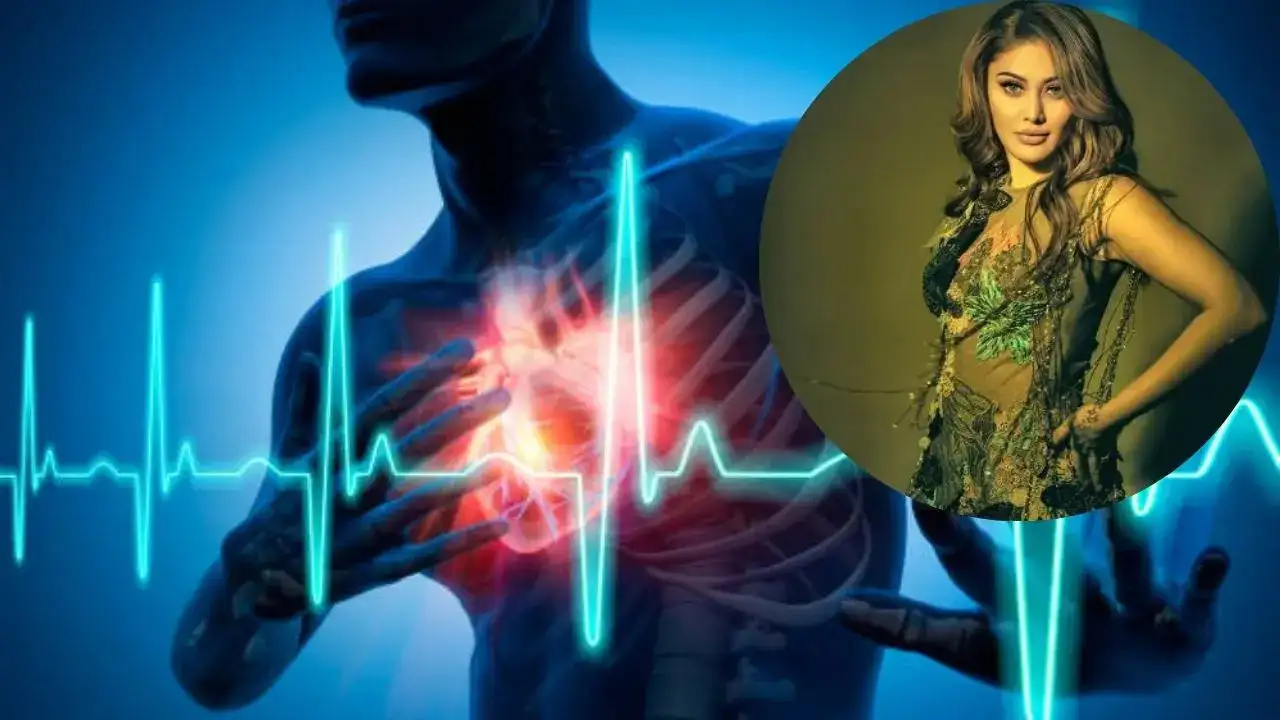
A sudden cardiac arrest can happen in those with or without heart disease (Pic: iStock/Instagram)
The sudden death of actor Shefali Jariwala at 42 has sent shockwaves across the country. Known for her dance moves and the hit song Kaanta Laga, Shefali reportedly suffered a sudden cardiac arrest late on Friday.
According to news reports, she was rushed to a nearby hospital by her husband, where she was declared dead. However, till now, there is no confirmation that her death was due to a cardiac arrest, as reported by some media. Post mortem report is not yet available.
What is a cardiac arrest?
Experts say a cardiac arrest happens when your heart completely stops beating or beats so fast that it stops pumping blood. During cardiac arrest, people typically collapse and become unresponsive. Symptoms start without warning. This is why people also call it sudden cardiac arrest.
In a cardiac arrest, also known as cardiopulmonary arrest, your heart stops pumping blood anymore, and within minutes, it puts your organs and whole body at risk of death because they must constantly receive oxygen. Your blood delivers that oxygen. Emergency treatment for saving a life includes cardiopulmonary resuscitation or CPR and defibrillation. CPR keeps enough oxygen in your lungs and gets it to your brain until an electric shock restores a normal heart rhythm.
According to experts, sudden cardiac arrest can happen in those with or without heart disease. However, having a heart attack or other heart condition can significantly increase your risk.
Signs and symptoms of a cardiac arrest
This life-threatening condition can become fatal if you do not receive immediate treatment. According to experts, cardiac arrest not only affects the elderly or those with an underlying or known heart condition. Often, your body does give subtle signs and hints that may not seem urgent but could be life-saving if caught in time.
A few signs and symptoms you must not ignore include:
Irregular heartbeat
Irregular heartbeat should not be taken lightly. Also known as arrhythmia, this condition is often seen in those who suffer cardiac arrest. Doctors say it may also feel like palpitations – fluttering or pounding in the chest. In many cases, it may be silent and only show up in medical tests.
Unexplained fatigue
The American Heart Association says unexplained fatigue and tiredness – which do not go away despite taking rest – can be one of the earliest symptoms of heart trouble, especially in women. In cases that lead up to cardiac arrest, many women report a draining kind of tiredness days or sometimes even weeks before the event happens.
It includes sluggishness and a loss of energy that lingers on.
Breathlessness
Breathing difficulty is among the most common symptoms of impending cardiac arrest. According to experts, more than 10 per cent of patients experiencing an out-of-hospital cardiac arrest had a phone call to the emergency medical services up to 24 hours before their arrest, either made by themselves or a bystander.
Tightness in chest
A feeling of tightness in the chest is one of the early signs of cardiac arrest. Doctors say apart from that, most patients feel pressure and fullness in the chest – especially among those who are younger than 50 years and women.
Doctors say a lot of patients describe the feeling of heaviness, like a belt-tightening across the chest or an invisible weight pressing down. Such sensations should not be dismissed as gas, muscle strain, or stress.
Feeling dizzy or fainting
Feeling dizzy can be a symptom of cardiac arrest due to reduced blood flow to the brain. However, doctors say it is often accompanied by other more prominent symptoms like sudden collapse, loss of consciousness, and lack of pulse or breathing. It is important to recognize that dizziness can also be a symptom of other conditions, so it's important to seek medical attention if you experience persistent or severe dizziness.
